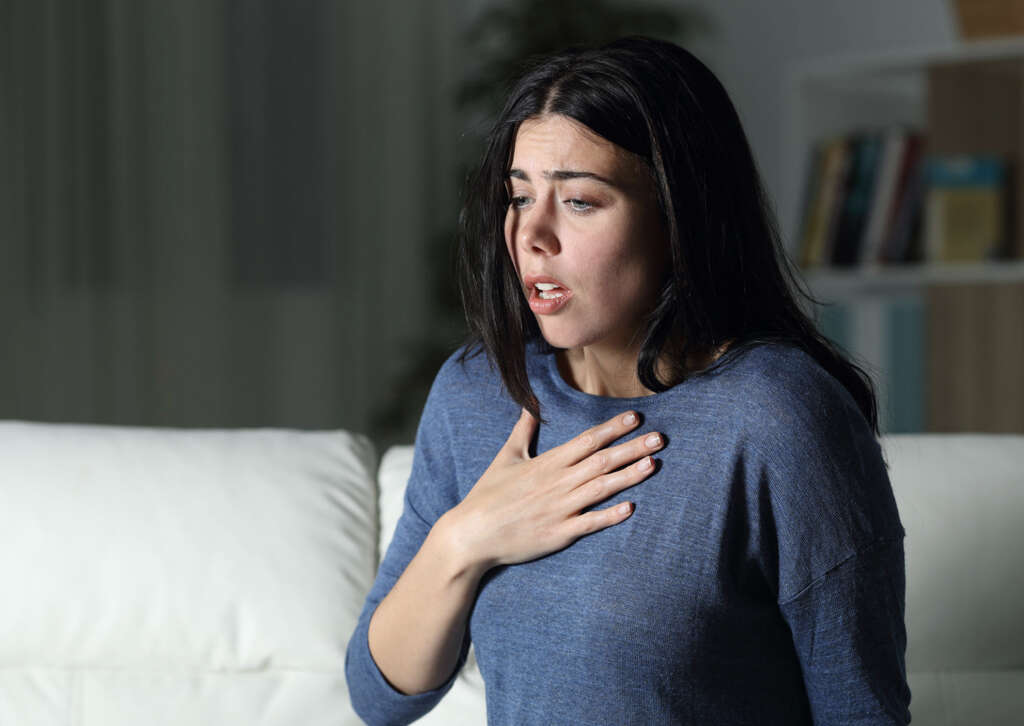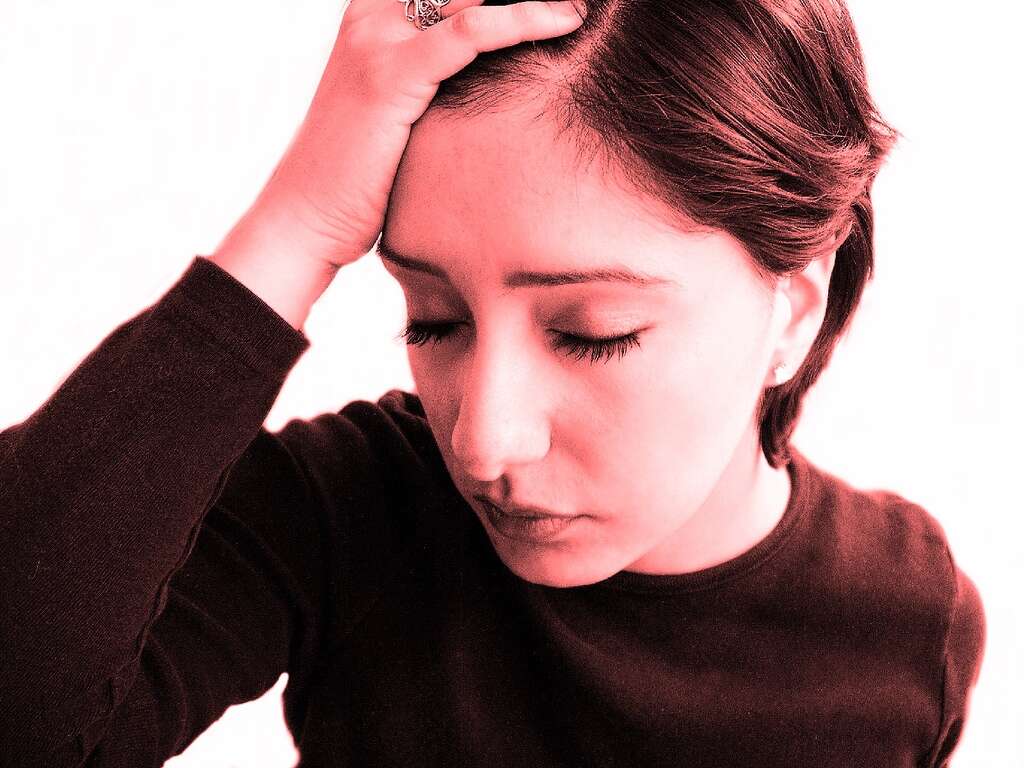What Are Anxiety Disorders?
Anxiety is a very natural emotion. It happens when certain hormones are released into our body, and these hormones help to ensure that we are in an alert state. This is important because there are times when being alert could literally save our lives. As important as it is for us, however, too much of it is bad for us.
Anxiety disorders are mental health conditions where the patient suffers from anxiety to unusual levels. They can feel anxious at times when there is no reason to, and the levels of anxiety they experience are also likely to be severe. It can be dangerous if it is left untreated, but treatment is available.

1. Overview
While stress and anxiety is quite normal, it will affect some peoples’ lives to the point where they can struggle to function. Anxiety disorders can incapacitate people to the point where they struggle to even leave their home. They can suffer from permanent apprehension about what is around them and what might happen at some point in the future.
There are different types of anxiety disorder. Each can be triggered in different ways and will also affect the patient in different ways. There is no cure for anxiety disorders, but treatment is available that can help to improve the patient’s quality of life considerably.

2. Causes
A lot is not known about what causes anxiety disorders. However, we are aware of various factors that are associated with the condition. For example, we know the people that have experienced traumatic events in the past are more prone. Some traits that were inherited from parents can also be a contributing factor.
Underlying health issues are also sometimes a contributing factor. This includes conditions like heart disease, asthma, diabetes, hyperthyroidism, chronic pain, and some types of tumor. Some drugs are also associated with anxiety disorders, and this includes both medicinal and recreational drugs, and excessive alcohol consumption.

3. Symptoms
The exact symptoms will vary according to which type of anxiety disorder the patient has. However, there are some symptoms that are fairly common among all such disorders. These include panic, and a sensation that something terrible us about to happen. Patients will also feel tense and nervous throughout much of their day.
Other symptoms include feeling tired and weak. The patient can have difficulty managing their concerns and will want to avoid scenarios that might make them feel anxious. Hyperventilation is another common symptom, as is an increased heart rate. The patient may also experience trembling and excessive sweating. Other symptoms include issues with the digestive system, difficulty concentrating, and difficulty sleeping.

4. Complications
The symptoms of anxiety disorder can already be very difficult for the patient. Things can get even worse for the patient as such disorders can cause further complications. For example, some patients with anxiety disorders will go on to develop dependencies on substances.
Anxiety can also cause the patient to become socially isolated, which can exasperate their mental health even further. They can struggle to cope at work and in their social lives and they can experience a generally poor quality of life overall. Anxiety disorders will also sometimes lead to depression, and it can also cause people to end up taking their own lives.

5. Types
There are severe types of anxiety disorder, including generalized anxiety disorder which causes patients to suffer anxiety over everyday matters. There is also social anxiety disorder, which makes people anxious about social situations, and agoraphobia, which causes people to avoid being around other people.
There are also phobias about specific things, and some people will develop an anxiety disorder over their health. Panic disorder is another type that will cause the patient to experience attacks of extreme fear and anxiety for no apparent reason. Separation anxiety disorder is a condition that can affect children, and selective mutism is another condition that can affect kids.

6. Who’s At Risk
People that have experienced traumatic events are among the most likely to develop anxiety disorders. This will often mean people that suffered abuse as a child. First responders are also in a high risk category, as are people who serve with the military. It can also happen to people who have been in severe accidents or natural disasters.
Other factors include having a personality that makes the patient more prone to stress. People with other mental health disorders are also at a higher risk. As are people who have a lot of stress in their lives, and those who use drugs and drink a lot of alcohol.

7. Prevention
It is very difficult to say exactly who will develop an anxiety disorder, and anybody could find themselves in a situation that could lead to one developing. We can however reduce the risk, and we can also take steps to prevent a condition from getting too serious.
If you use drugs then you are more prone to anxiety disorders. If you gave an addiction and are trying to quit, you should seek professional help because withdrawal can also cause anxiety. Being active and living a healthy lifestyle can also help. If a problem is recognized, getting help as soon as possible will help prevent serious complications.

8. Diagnosis
Your doctor will likely need to ask you about your symptoms. They may also want to perform a brief exam to look for signs of physical health issues. If they do suspect you have an anxiety disorder, or other mental health issues, you will need to be referred to a psychologist.
The psychologist will perform a psychological exam on you. This will involve asking you questions about your symptoms and how they impact your life. The psychologist will also use the time to help look for any other conditions you might have. If the patient’s symptoms meet certain criteria then the psychologist will be able to reach a diagnosis.

9. Medications
There is no medication that can cure anxiety disorders. However, medication can be used to help ease the patient’s symptoms. Medication can also be used to help to treat any other mental health conditions the patient might be suffering from. This will typically include anti-anxiety medication and anti-depressants.
Other medication like beta blockers may also be used, but these will only be suitable in the short term. Sedatives may also be used but this is usually only in cases where the patient is feeling particularly distressed. Doctors should always be informed if the patient suffers bad reactions from any type of medication.

10. Psychotherapy
Another treatment available for anxiety disorders, and other mental health conditions, is psychotherapy. This will involve the psychotherapist holding counseling sessions with the patient. There are different types of psychotherapy, and cognitive behavioral therapy is one of the most commonly used when it comes to anxiety disorders.
The aim of cognitive behavioral therapy is to teach the patient the skills they need to manage their condition. It includes having the patient gradually expose themselves to certain triggers to help build their confidence. Psychotherapy is usually a relatively short term treatment, and it can be very effective in improving the patient’s quality of life.












